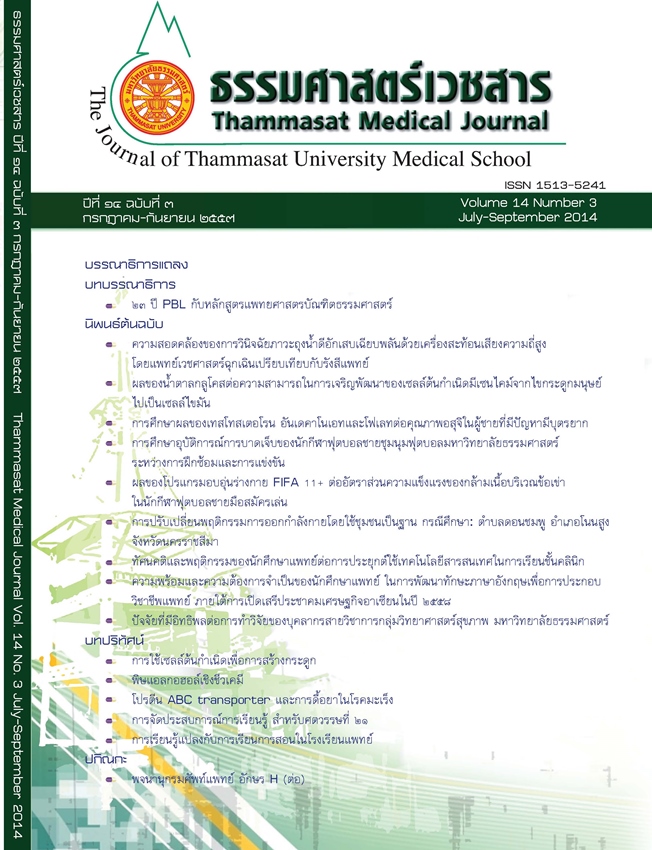The reliability of ultrasonographic diagnosis of acute cholecystitis performed by emergency physicians compared with radiologists
Keywords:
Cholecystitis, Cholecystis, Emergency Department, Ultrasonography, Ultrasonographic's MurphyAbstract
Introduction: Currently, the accurate and rapid method to diagnose acute cholecystis is ultrasonography. Suspected acute cholecystitis patients have to be repeatedly undergone ultrasongraphic diagnosis by emergency physician and radiologist to receive official report. This process increases the patients , length of stay in Emergency Department (ED) and increases cost of management more affordable. Aim of this study was to determine the agreement of ultrasonographic diagnosis of acute cholecystitis between emergency physicians and radiologists at ER, Ramathibodi hospital.
Method: Cross sectional study was conducted in ED, Ramathibodi hospital from July 2010 to June 2011. Medical records of all suspected acute cholecystitis patients who were older than 15 years old were reviewed Kappa statistic was applied to determine agreement of diagnosis between emergency physicians and radiologists.
Results: Of 105 patients, 38 patients (36.2%) were male. Median age was 55.8 years (18 - 90 years) and median weight was 64.5 kilograms (45 - 98 kilograms). Sixty-three patients (60%) had right upper quadrant abdominal pain. There were 98 patients (93.5%), 50 patients (47.6%) and 49 patients (50%) showed right upper quadrant of abdomen tenderness, Murphy ,s sign and fever, respectively. Sixty seven patients (63.8%) were diagnosed acute cholecystitis by emergency physician, and 56 patients (53.3%) were diagnosed by radiologist (k = 0.670, p < 0.01). Base on ultrasonographic findings, moderated agreement was found in both ultrasonographic Murphy ,s sign and more than 3 millimeters (mms) thickness of gall bladder wall (k = 0.513 and 0.604, respectively). Substantial agreement was found in the presentation of gallstone. Pericholecystic fluid was detected by emergency physicians and radiologists with slight agreement.
Discussion and Conclusion: More than 3 millimeter thickness of the gallbladder wall and ultrasonographic Murphy ,s sign showed moderated agreement between emergency physicians and radiologists. Presentation of gallstone showed substantial agreement of diagnosis.
Key words: Cholecystitis, Cholecystis, Emergency Department, Ultrasonography, Ultrasonographic's Murphy



